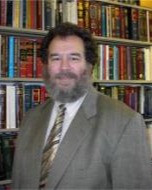

Alan Jay Weisbard
September 21, 1950 — September 11, 2023
Bethesda
Alan Jay Weisbard, UW-Madison emeritus professor of law, bioethics, Jewish studies and religious studies, died just shy of his 73rd birthday at his home in Bethesda, MD, on September 11, 2023. Alan was born to Ruth (Oster) and Ralph Weisbard in Miami Beach, FL, on September 21, 1950. His later deep attachment to Judaism and Jewish study was prefigured by his being born on Yom Kippur, the holiest day of the Jewish calendar.
Alan loved his family, juicy intellectual discussions, lifelong learning, teaching, good food, beautiful possessions, Far Side humor, friends near and far, integrity, and justice – his license plate was “tzedek,” Hebrew for justice. He is survived by his daughter Rabbi Talya Weisbard Shalem, son Ari Weisbard and his partner Rebecca Ennen, grandchildren Noam Shalem and Misha and Selma Ennen, former wife and dear friend Phyllis Holman Weisbard, sister Cheryl Weisbard Foung and her husband Steven, brother Marshall Weisbard and his wife Donna, brother-in-law Neil Holman and his partner Sue Schapiro Davis, and nieces and nephews Mollie and Daniel Holman, Mary Guidone, Bryan and Harita Weisbard, Alejandro, Cristina, and Monique Foung, Jessica Goldman, and Tim Worley, and great nieces and nephews. An outpouring of messages since his death attests to the importance and influence he had as a teacher, colleague, and friend. As Yishai Barth, mentee for the last five years of Alan’s life put it, “[Alan] changed the way I conceive of morality and reshaped my being in ways that will affect the trajectory of my development and my every significant life choice as long as I live.”
Alan had occasion to reflect on his life for the 50th reunion book of his Harvard undergraduate class of 1971, and we will let him summarize what he considered important with his characteristic honesty, aplomb, and playful humor. Here are his words from his statement, lightly edited and occasionally augmented by us (in italics):
“So, October 9th, 2020. The last day to submit, as is my wont.
I am somewhat surprised to be here, after the diagnosis of a high grade prostate cancer in 2005 and the cancer’s threatening return from remission in 2012 or 2013. I am deeply grateful for these years, which have allowed me to witness the birth of three beloved grandchildren, and will, I hope, allow at least the older two of them to remember me as a kind and loving Saba (grandfather). Phyllis and I raised two wonderful children, Talya the rabbi and Ari the lawyer, of whom we are very proud. Both Talya and Ari are Harvard graduates, and Ari followed me to Yale Law School as well. What could be better?
Having been privileged to make it to 70, I have been doing a lot of reflection on my life and career. I had a somewhat unusual path through my undergraduate years. After the year of the University Hall occupation, I was able to get some distance by participating in the self-designated “International Honors Program”. A group of 31 students, 3 faculty, and some of their family members, traveled around the world with study periods of 3-8 weeks in each of about a dozen countries. This included long stays in Japan and India, as well as my first visit to Israel. In many ways, the experience was transformational, setting the agenda for the rest of my life. The time in Israel was especially important, bringing both Zionism and Judaism into my life in a much more substantial way. After a semester back at Harvard, I received a grant from the JFK Institute of Politics, which enabled me to spend a full year in Israel, studying Hebrew and Jewish Studies and conducting research for my senior honors thesis. That more or less wrapped up my undergrad requirements, allowing me to spend my final semester in Cambridge auditing courses with Michael Walzer and Yosef Haim Yerushalmi, two of the teachers whose influence stayed with me through my life. Maybe because I didn’t have to worry about papers or exams for their classes?
After studying at the Harvard Grad School in economics for two years, I returned to my first professional love, the law. I decided to go to Yale rather than Harvard Law School, one of my best decisions ever. Yale Law’s teachers were much more accessible and friendly than my teachers at Harvard, and the intellectual atmosphere was much more stimulating. I also had an easier time making good friends with my law school classmates than I had at Harvard, and many became friends for life, as did a number of faculty members. My work with Jay Katz, Robert Burt, Robert Cover, and Guido Calabresi had particular influence, opening up the still nascent field of Bioethics and the Law to me. That would become the central focus of my scholarship, teaching, and policy work for the next several decades. Alan honored Jay Katz by changing his middle name to Jay after Jay Katz passed away.
After a wonderful clerkship year with Judge Irving Goldberg on the Federal Fifth Circuit Court of Appeals in Dallas, I moved with my expanding family to Washington, DC, where I worked for a time with the nuclear energy practice at the Shaw Pittman law firm. One of our clients was the utility that owned Three Mile Island, and I was deep in the mix of public investigations following the accident. A couple of years in private big firm practice was more than enough for me. When an opportunity opened up to serve as senior lawyer for a new Presidential Commission on Bioethics, I jumped there and had a terrific opportunity for cross disciplinary policy work with some superb colleagues from a number of distinct fields. At some point I felt entitled to start calling myself a bioethicist as well as a lawyer.
As my share of the project work at the Commission was winding up, I started my academic career teaching at Cardozo Law School and Albert Einstein Medical School and Montefiore Hospital, all affiliated with Yeshiva University in New York. After several years there, the opportunity came my way to serve as Executive Director of the newly formed New Jersey (State) Bioethics Commission. Again, this was great fun, and we developed several innovative legislative proposals that were enacted, with only minor changes, by the NJ Legislature. This was, I think, the peak of my career.
In 1990, I was invited to join former colleagues at the University of Wisconsin in Madison, teaching in the law school, the medical school, and undergrad and grad school courses in bioethics-related fields. I stayed at Wisconsin for the remainder of my career, with the exception of a year’s fellowship at Princeton, until health problems forced me to take a disability retirement. I thought I would teach until I dropped, but depending how you look at it, I either quit or I dropped. Alan taught first year torts and created innovative new courses on bioethics; children, parents and the State; caring for the dying patient; and Jewish law and ethics in religion and medicine in historical, ethical, and legal perspective.
Resume items aside, a second major theme of my life was Jewish studies. Very little of this was formal learning, but I took many short opportunities for Jewish learning across the whole spectrum of Jewish life, history, and culture. I found this immensely fulfilling and a great source of both intellectual simulation and close friendships with people in the field. I had a few opportunities to teach courses on Jewish Law and Ethics at Wisconsin, and to do a good bit of teaching in adult education settings at my synagogues and in other settings. Alan founded and organized Lehrhaus, a community-wide institute for adult Jewish learning in Madison, Wisconsin, for several years, and talked many university colleagues into teaching inspiring classes to the broader community.
One of our best family decisions was for the whole family to devote a week each summer to the National Havurah Committee Summer Institutes, which I consider importantly responsible for Talya’s decision to pursue the rabbinate, for Ari’s commitment to Jewish social justice activities and meeting his partner, and for our rich Jewish life as a family.
Looking back, I am deeply grateful to so many of my teachers, both formal and informal, for the knowledge they transmitted and the life examples they set. Although Phyllis and I ultimately decided not to continue to live together, we have continued to be friendly and cooperative, and I want to pay tribute to her as my companion for most of my adult life.
Life since retirement involved a lot of screens, particularly during the long months of the pandemic. I loved to learn across a variety of fields, and enjoyed participating in online book groups, zooms, and listservs. My interactions with friends, colleagues, and classmates kept me stimulated and engaged despite my physical isolation and occasional profound loneliness. I am grateful to fellow participants in those lists for their lively intellects, keen wit, and sustaining friendship.”
The family requests that donations in Alan’s memory be made to the Holman/Weisbard Fund for Adult Jewish Learning at Beth Israel Center, 1406 Mound Street, Madison, Wi 53711; the National Havurah Committee, 125 Maiden Ln #8B, New York, NY 10038; the Democratic Party of Wisconsin, 15 N. Pinckney St, Madison, WI 53703; or to a charity or another progressive organization of your choice.
|
|
|
|
Service Schedule
Past Services
Funeral Service
Wednesday, September 13, 2023
1:00 - 2:00 pm (Central time)
Beth Israel Center
Graveside Service
Wednesday, September 13, 2023
2:30 - 3:30 pm (Central time)
Forest Hill Cemetery
Photo Gallery
Guestbook
Visits: 860
This site is protected by reCAPTCHA and the
Google Privacy Policy and Terms of Service apply.
Service map data © OpenStreetMap contributors


